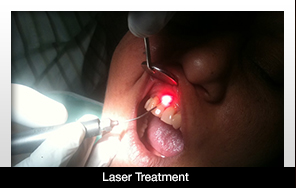Written by Dentistry TodayTuesday, 05 June 2012 15:34

Legislation has been proposed in North Carolina that will revamp the regulations for dental treatment. Many people are divided on how the impact will be felt.
The purpose of the bill, according to legislators, is to regulate companies in the way billing is handled between dental management companies and the dentist. This issue came to the forefront because some of the dental management companies allegedly profited from some treatment in recent years instead of performing only necessary dental work that was in the best interest of the patient. If these allegations are true, the taxpayers end up paying more money than they should be paying.
There are laws in North Carolina and many other states that prohibit corporate dentistry for that reason. Changes have been made in other states already, like Texas.
Many dentists associated with the North Carolina Dental Society are in favor of the bill because they feel the state dental board should pay closer attention to billing to make sure dentists only bill for necessary treatment.
Many other people, including some of the investors of the dental companies, are doing everything to prevent the bill from passing. They held a news conference outside of the Legislative Building to oppose the bill and have raised money for a campaign against the bill.
Both sides have sponsored commercials about the issue.
The bill has not yet taken effect and the issue is still ongoing.

